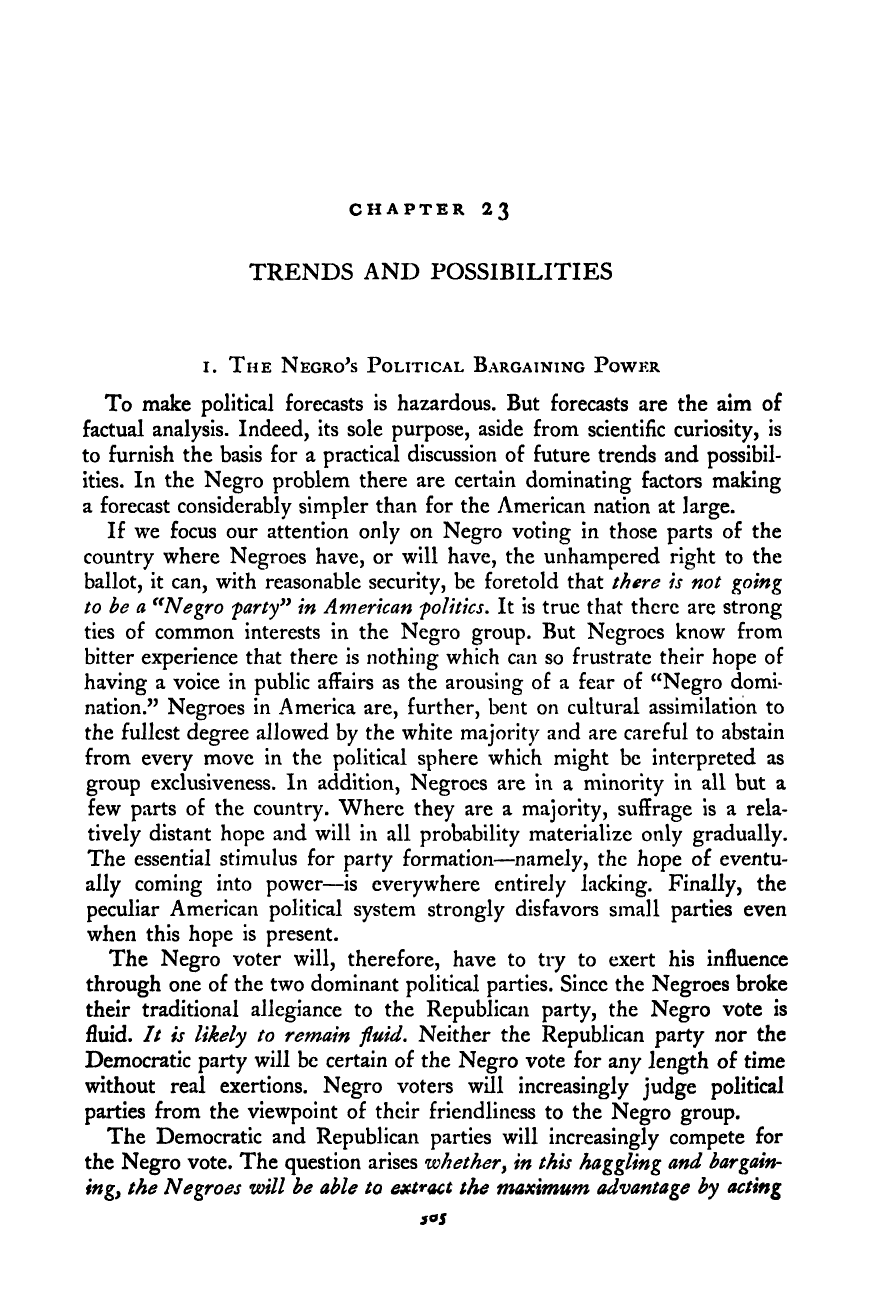Note: Gunnar Myrdal died in 1987, less than 70 years ago. Therefore, this work is protected by copyright, restricting your legal rights to reproduce it. However, you are welcome to view it on screen, as you do now. Read more about copyright.
Full resolution (TIFF) - On this page / på denna sida - V. Politics - 23. Trends and Possibilities - 1. The Negro’s Political Bargaining Power

<< prev. page << föreg. sida << >> nästa sida >> next page >>
Below is the raw OCR text
from the above scanned image.
Do you see an error? Proofread the page now!
Här nedan syns maskintolkade texten från faksimilbilden ovan.
Ser du något fel? Korrekturläs sidan nu!
This page has never been proofread. / Denna sida har aldrig korrekturlästs.
CHAPTER 23
TRENDS AND POSSIBILITIES
I. The Negroes Political Bargaining Power
To make political forecasts is hazardous. But forecasts are the aim of
factual analysis. Indeed, Its sole purpose, aside from scientific curiosity, is
to furnish the basis for a practical discussion of future trends and possibil-
ities. In the Negro problem there are certain dominating factors making
a forecast considerably simpler than for the American nation at large.
If we focus our attention only on Negro voting in those parts of the
country where Negroes have, or will have, the unhampered right to the
ballot, it can, with reasonable security, be foretold that there is not going
to be a Negro farty^^ in American folitics. It is true that there are strong
ties of common interests in the Negro group. But Negroes know from
bitter experience that there is nothing which can so frustrate their hope of
having a voice in public affairs as the arousing of a fear of “Negro domi-
nation.” Negroes in America are, further, bent on cultural assimilation to
the fullest degree allowed by the white majority and are careful to abstain
from every move in the political sphere which might be interpreted as
group exclusiveness. In addition, Negroes are in a minority in all but a
few parts of the country. Where they are a majority, suffrage is a rela-
tively distant hope and will in all probability materialize only gradually.
The essential stimulus for party formation—namely, the hope of eventu-
ally coming into power—is everywhere entirely lacking. Finally, the
peculiar American political system strongly disfavors small parties even
when this hope is present.
The Negro voter will, therefore, have to try to exert his influence
through one of the two dominant political parties. Since the Negroes broke
their traditional allegiance to the Republican party, the Negro vote is
fluid. It is likely to remain fuid. Neither the Republican party nor the
Democratic party will be certain of the Negro vote for any length of time
without real exertions. Negro voters will increasingly judge political
parties from the viewpoint of their friendliness to the Negro group.
The Democratic and Republican parties will increasingly compete for
the Negro vote. The question arises whethery
in this haggling and bargain-
ingy the Negroes will be able to extract the maximum advantage by acting
yos
<< prev. page << föreg. sida << >> nästa sida >> next page >>